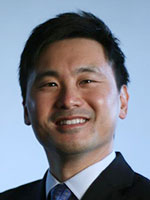Speakers

Dr. Patrick PURDON
Advanced Professor, Department of Anaesthesia, Critical Care and Pain Medicine, Massachusetts General Hospital, United States of America
Patrick L. Purdon, Ph.D., is an Associate Professor of Anesthesia at Harvard Medical School and the Nathaniel M. Sims Endowed Chair in Anesthesia Innovation and Bioengineering at Massachusetts General Hospital. Dr. Purdon received his A.B. in Engineering Sciences from Harvard College in 1996, his M.S. in Electrical Engineering from MIT in 1998, and his Ph.D. in Biomedical Engineering from MIT in 2005. Dr. Purdon’s research in neuroengineering encompasses the mechanisms of anesthesia, Alzheimer’s disease and brain health, anesthesia and the developing brain, neural signal processing, and the development of novel technologies for brain monitoring. He has published over 90 peer-reviewed publications, is an inventor on 16 pending patents, and is a Fellow of the American Institute for Medical and Biological Engineering. Dr. Purdon has won numerous awards, including the prestigious National Institutes of Health Director’s New Innovator Award.
A high proportion of the patients receiving general anesthesia are elderly, and that proportion will only continue to rise as our global population ages. Anesthesiologists know well that the anesthetic management of older patients is different than that of younger patients. Much of the reasoning to explain these differences has emphasized declines in systemic physiological function during aging. However, there are underlying changes in brain structure and function that occur during aging and dementia that profoundly impact how elderly patients respond to anesthetic drugs. What are the basic neurobiological changes that occur in aging and dementia? How might these changes relate to clinical outcomes in elderly patients? How do changes in brain structure and function during aging and dementia relate to our rapidly evolving understanding of the systems-level neural mechanisms of anesthetic drugs? This talk will attempt to shed light on these important and questions and provide case study examples of how the EEG can be used to guide anesthetic management in elderly patients.